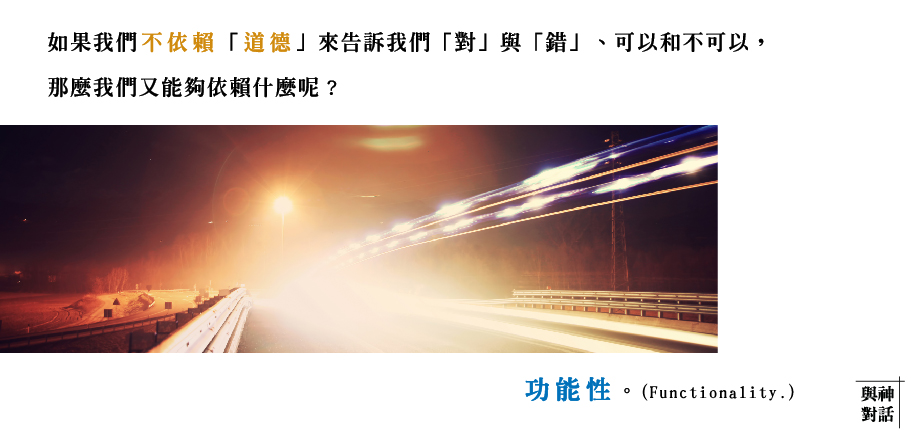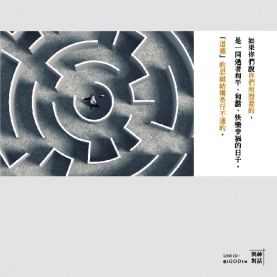很少人能夠像張榮發先生一樣地善用道德的力量在自己和周遭的人身上,為社會帶來一分安定的力量,值得敬佩。然而,因道德的約束(由外向內)而安定,與因覺知的擴展(由內心自由意志的選擇)而安定,兩者在意識和演化的進展上有很大的差異。您看出這差異了嗎?何者是較文明進化的跡象?

聽神談【「道德」與「功能性」】: 4/4
如果道德 ——是一種因時因地不同而可變動的見解 ——根本並非世界運作的原理呢?
如果世界運作原理中唯一需討論的問題只是「功能性」呢?也就是:「根據你們想要成為(be)什麼、做出(do)什麼、擁有(have)什麼,你們採取的那項行動或反應能不能行得通?」
現在你們有一個完全不同的脈絡可置身其中(即從目的和功能的角度)去思考你的反應。現在你們能以完全不同的方式看待事情。現在你們已「跳出框架」 ——一個你們物種一直身深陷其中,充滿暴力、毀滅與死亡之永無休止循環的框架。
因此,回到剛才死刑的例子,是否「死刑制度」有助於達到你們想達成的目的?它是否具備了「功能性」呢?
尼爾:統計數字顯示出,那些最常採用死刑的政府與國家,犯罪率並不比那些最少採用的政府與國家低。如果死刑足以嚇阻暴力犯罪,那麼犯罪率爲何不會因此而下降?
如果一個社會還在實行「以暴制暴」的方式,那它是否有點落後?
這正是許多「道德」合法化造成的問題。它們會孕育出不理智的行爲。全世界已經在二〇〇一年九月十一日目睹此言的證據。

一再發生(冤冤相報)的暴力行爲。
尼爾:然而,如果我們不依賴「道德」來告訴我們「對」與「錯」 ——可以做和不可以做什麼——那麼我們又能夠依賴什麼呢?
功能性。(Functionality.)
摘自《與神對話之新啟示》第22章

But what if morals—which are moveable feasts in any event—were not part of the equation?
What if the only question was functionality—whether a particular action or reaction worked or did not work, based on what it is you were trying to be, do, or have?
Now you have an entirely different context within which to consider your response. Now you're looking at things in an entirely different way. Now you are "outside the box"—the box in which you have trapped yourselves as a species in a neverending cycle of violence, destruction, and death.
So, to use the example above, does the death penalty do what you want it to do? Does it have functionality?
If the purpose of the penalty is to even the score, it does. Yet if the purpose of the penalty is to deter other crimes, it does not.
Neale: Statistics clearly show that the states and nations using the death penalty the most have no lower crime rates than those using it the least. What is that about? If the death penalty deters violent crime, why don't the rates go down and stay down?
Could it be that a society that practices violence in order to end violence has something a bit backward?
That is the problem with many "moral" justifications. They can breed insane behaviors. Your planet saw evidence of that on September 11, 2001.
Again.
Neale: Yet, if we don't rely on "morals" to tell us what is right and wrong—what to do and what not to do—on what do we rely?
Functionality.









